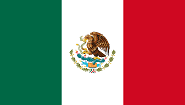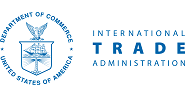Trade Cases

February 8, 2021
Section 232 Adds Nearly $2 Billion to Gov't Coffers in FY20
Written by Michael Cowden
Section 232 tariffs on imported steel and aluminum netted the U.S. government nearly $2 billion in its 2020 fiscal year.
U.S. Customs and Border Protection (CBP) collected $1.3 billion in Section 232 tariffs on imported steel in fiscal 2020 and $500 million in tariffs on imported aluminum, according to a recent report from the agency.
The federal government’s fiscal 2020 began on Oct. 1, 2019, and ran through Sept. 30, 2020.![]()
All told, CBP has collected nearly $7.52 billion in Section 232 steel tariffs and approximately $2.36 billion in alumium tariffs since the trade measure took effect on March 23, 2018, according to data updated each week by the agency.
Most countries face duties of 25% on steel imports and 10% on aluminum imports. Argentina, Australia, Brazil, Canada, Mexico and South Korea are exempt from Section 232 tariffs.
CBP also oversees collections stemming from other non-traditional trade actions such as Section 201 duties on washing machines, washing machine parts, and solar panels, as well as Section 301 on goods from China.
“Despite the pandemic, CBP collected $74.4 billion in duties, a 3.5 percent increase over FY2019,” the report said, noting that much of the increase came thanks to Sections 232, 201 and 301.
Section 201 netted the government more than $900 million in its last fiscal year and roughly $2.35 billion since taking effect on Feb. 7, 2018. The majority of Section 201 duties–$2.09 billion, or 88% of the total– stem from duties on solar panels. Canada is exempt from the measure.
The bulk of all tariffs collected by CBP result from Section 301 duties on China. Section 301 on Chinese goods brought $35.6 billion into government coffers in fiscal 2020–or approximately 48% of the $74.4 billion collected in the last fiscal year thanks to the three Sections.
Section 301 was rolled out July 6, 2018, per CBP, but did not take effect in significant terms until 2019.
By Michael Cowden, Michael@SteelMarketUpdate.com







